
The Violence of Eviction
To understand how the housing market really works, we need to hear the stories of those who have been pushed out. Two essential new books shine a spotlight on those stories, and illuminate much more in the process.


To understand how the housing market really works, we need to hear the stories of those who have been pushed out. Two essential new books shine a spotlight on those stories, and illuminate much more in the process.
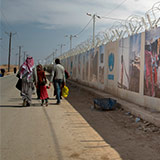
Za’atari refugee camp houses some 80,000 residents, making it one of the largest cities in Jordan. Views from inside the wall.

The left neglects the institutional structures of democracy at its own peril. In his latest book, political theorist Jeremy Waldron offers a welcome corrective.

Far from heralding a “post-racial” era, the Age of Obama has fostered an intense racialization of U.S. politics and an eruption of agonistic identity politics across partisan lines. These challenges will be among the most vital of the post–Obama era, for both black politics and the resurgent American left.
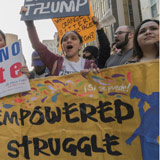
Pan-Latino identity, once the result of a sort of strained political imagination, is increasingly real—and recognizing its potency will be central to building a new progressive movement in the United States.

Two new books illustrate the central role of black women’s convict labor in the construction of the Jim Crow South, white womanhood, and American capitalism writ large.
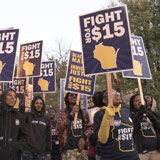
Now approaching its fourth anniversary, the Fight for $15 has transformed a magnetic labor rallying cry into a popular grassroots movement, making the once unimaginable the new normal and helping to put inequality at the center of national debate.
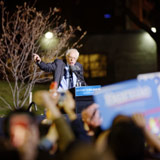
The young activists who campaigned for Bernie Sanders are clearly the Democrats’ future. Do they have the power and the smarts to remake the Democratic Party?

Five years since the start of the war, reporting on Syria has gone from an upbeat story of the Arab Spring to a tableau of horrors. The horrors are undeniable, but what the story lacks is a chronicle of Syrian resistance.

The Democratic primary revealed the fault lines of both establishment feminism and the socialist left. It also suggested an appetite for the kind of feminism we need—one that understands the impact of economic and foreign policy on the majority of women’s lives.
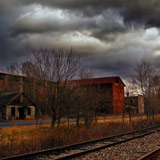
How I renounced the God-and-guns conservatism of my blue-collar roots and embraced class politics.
If there’s one issue that has dominated the left in recent years, it’s our belated recognition of the explosion of economic inequality in the United States. Most of us were aware of its growth through the Clinton and Bush years, …
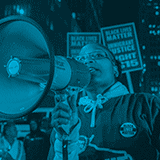
This fall’s election campaign may be the most tumultuous one since 1968, and with good reason. How did we get here? And what’s next?
Introducing our Summer special section.
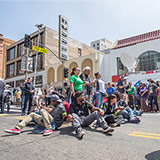
Politics cannot just be about consensus. It must also be about conflict. More important, it must always be about asking for more.
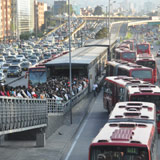
Since the early 2000s, when the Shell-backed EMBARQ began promoting bus rapid transit (BRT), a wide range of philanthropists and transit advocates have seized on the “technical fix,” which promises to solve a recognized problem without challenging the power relationships that created it.